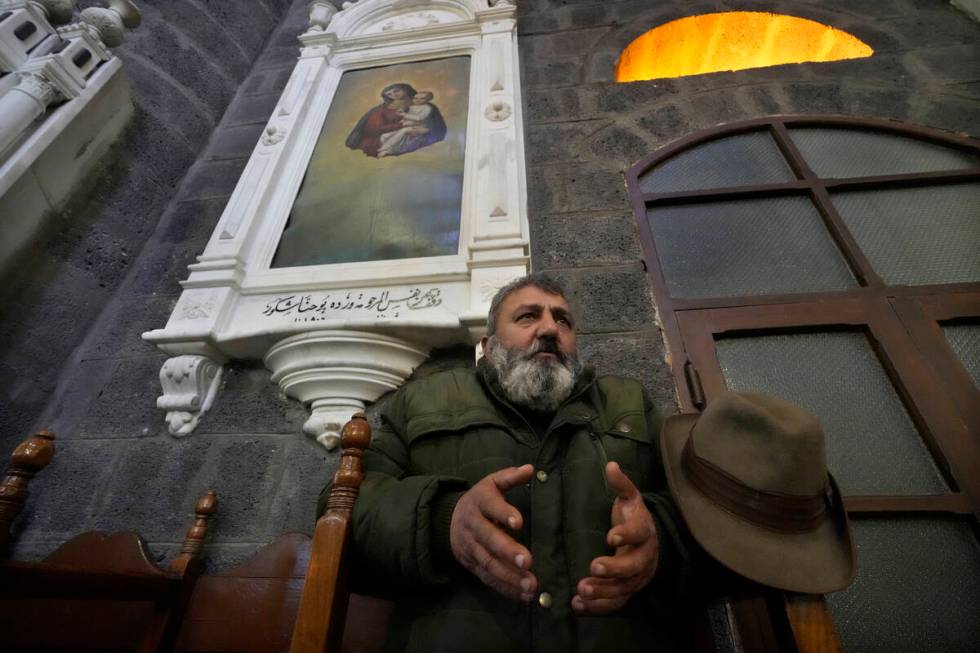Syrians mark change with prayer

DAMASCUS, Syria — In churches across long-stifled Syria, Christians marked the first Sunday services since the collapse of Bashar Assad’s government in an air of transformation. Some were in tears. Others clasped their hands in prayer.
“They are promising us that government will be formed soon and, God willing, things will become better because we got rid of the tyrant,” said one worshiper, Jihad Raffoul, as the small Christian population hoped that new messages of inclusion would ring true.
“Today, our prayers are for a new page in Syria’s future,” said another, Suzan Barakat.
To help those efforts, the U.N. envoy for Syria, Geir Pedersen, called for a quick end to Western sanctions as the rebel alliance that ousted Assad and sent him into exile in Russia a week ago considers the way forward.
Syria has been under deeply isolating sanctions by the United States, the European Union and others for years as a result of Assad’s brutal response to what began as peaceful anti-government protests in 2011 and spiraled into civil war.
In another sign of yearning for normalcy, schools in Damascus reopened for the first time since Assad’s ouster. At the Nahla Zaidan school in the Mezzah neighborhood, teachers hoisted the three-starred revolutionary flag.
“God willing, there will be more development, more security and more construction in this beloved country,” said school director Maysoun Al-Ali.
But other challenges complicate rebuilding. The new leadership has not laid out a clear vision of how the country will be governed, and the main group behind the offensive remains designated as a terrorist organization by the U.S., which nevertheless has begun making direct contact.
Officials in Washington have indicated that the Biden administration is considering removing the terror designation from the group Hayat Tahrir al-Sham, or HTS, which was once an al-Qaida affiliate.
The interim government is set to rule until March. Arab foreign ministers have called for U.N.-supervised elections based on a new constitution.
“We need to get the political process underway that is inclusive of all Syrians,” Pedersen said. He also called for justice and accountability for crimes committed during the war, as some families continued to search for the tens of thousands of people that Assad’s government placed in prisons and detention facilities.
An emergency meeting this weekend with foreign ministers from the U.S., Arab League and Turkey and top officials from the European Union and U.N. agreed the new government in Syria should prevent terror groups — like remnants of the Islamic State group — from taking hold and secure and destroy any remaining Assad-era chemical weapons.
The meeting also urged all parties to cease hostilities in Syria.
Israel says ‘no interest in conflict with Syria’
Israeli Prime Minister Benjamin Netanyahu said in a video statement released Sunday that “we have no interest in conflict with Syria” and Israel’s policy will follow “the emerging reality on the ground.” He described Israeli military actions in the past week, including hundreds of airstrikes, as aimed at thwarting potential threats. Israel also has sent in ground troops, calling the incursion temporary but signaling the presence is open-ended.
For his part, HTS leader Ahmad al-Sharaa has said they don’t intend to enter any conflict “because there is general exhaustion in Syria.”